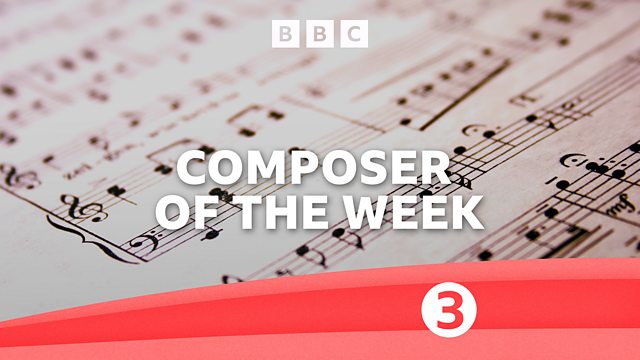
Hazy Pictures
Donald Macleod considers the reasons behind Grieg's outward contentment and his inner struggles with his feelings. Music includes the Ballade in G minor and Slatter.
Donald Macleod considers the reasons behind Grieg's outward contentment and his inner struggles with his feelings. Music includes the Ballade in G minor and Slåtter.
On 9 September 1907, it’s estimated that some forty to fifty thousand people turned out to pay their respects and watch Edvard Grieg’s cortège pass through the streets of Bergen. It’s an image that speaks of the enormous affection and esteem in which Grieg was held at the time of his death.
Bergen was where Grieg was born in 1843, and in a speech he made 60 years later, he acknowledged that his music was drawn from the life of its people, the surroundings of the town and its natural beauty.
His birthplace is one of several locations that provided Grieg with professional opportunity and creative nourishment. This week Donald Macleod’s exploring Grieg’s life through the contrasting environments he needed to find the inspiration to write music.
Donald begins his survey in Bergen, before assessing the decade Grieg spent in Oslo, the solitude he found in the picturesque Hardanger region and in the house he had built in the mountains. But Grieg had another, contradictory, side to his nature, he was also a restless spirit and a keen traveller.
In 1885 Grieg had a house built six miles from his birthplace in Bergen, on the west coast of Norway. It was perfectly situated to provide him with the peace and quiet he needed to compose. Yet, even in this outwardly idyllic surrounding, Grieg struggled to balance his emotional life.
Remembrances (Lyric pieces, Op 71)
Emil Gilels, piano
Melodies of the Heart, Op 5
To brune Ojne
Jeg elsker Dig
Monica Groop, mezzo soprano
Love Derwinger, piano
Ballade in G minor (in the form of variations on a Norwegian folktune), Op 24
Leif Ove Andsnes, piano
Cello Sonata in A minor Op 36 (Allegro molto e marcato)
Steven Isserlis, cello
Stephen Hough, piano
Slåtter, Op 72: The Goblin's Bridal Procession; Halling from the Hills;
The Girls of Kivledal Folk Dance; John Vaestafae's Dance
Ivana Gavrić, piano
Producer: Johannah Smith for ����ý Wales
Last on
More episodes
Next
Coming soon
Music Played
-
![]()
Edvard Grieg
Lyric Pieces, Op 71, No 7 (Remembrances)
Performer: Emil Grigoryevich Gilels.- DEUTSCHE GRAMMOP : DG 449-721-2.
- DEUTSCHE GRAMMOP.
- 20.
-
![]()
Edvard Grieg
Melodies of the Heart, Op 5 (Nos 1 & 3)
Performer: Love Derwinger. Singer: Monica Groop.- BIS : CD-637.
- BIS.
- 7.
-
![]()
Edvard Grieg
Ballade in G minor, Op 24
Performer: Leif Ove Andsnes.- EMI : 3943992.
- EMI.
- 4.
-
![]()
Edvard Grieg
Cello Sonata in A minor, Op 36 (Allegro molto e marcato)
Performer: Steven Isserlis. Performer: Sir Stephen Hough.- Hyperion: CDA68079.
- Hyperion.
- 3.
-
![]()
Edvard Grieg
Slåtter, Op 72 (Nos 1 - 4)
Performer: Ivana Gavrić.- CHAMPS HILL RECORDS : CHRCD-067.
- CHAMPS HILL RECORDS.
- 8.
Broadcast
- New Year's Day 2021 13:05����ý Radio 3
Beethoven Unleashed – the box set
What was really wrong with Beethoven?
Composers A to Z
Who knew? Five eye-opening stories from Composer of the Week
Five reasons why we love Parry's Jerusalem
What is the strange power of Jerusalem which makes strong men weep?
A man out of time – why Parry's music and ideas were at odds with his image...
The composer of Jerusalem was very far from the conservative figure his image suggests.
Composer Help Page
Find resources and contacts for composers from within the classical music industry.





